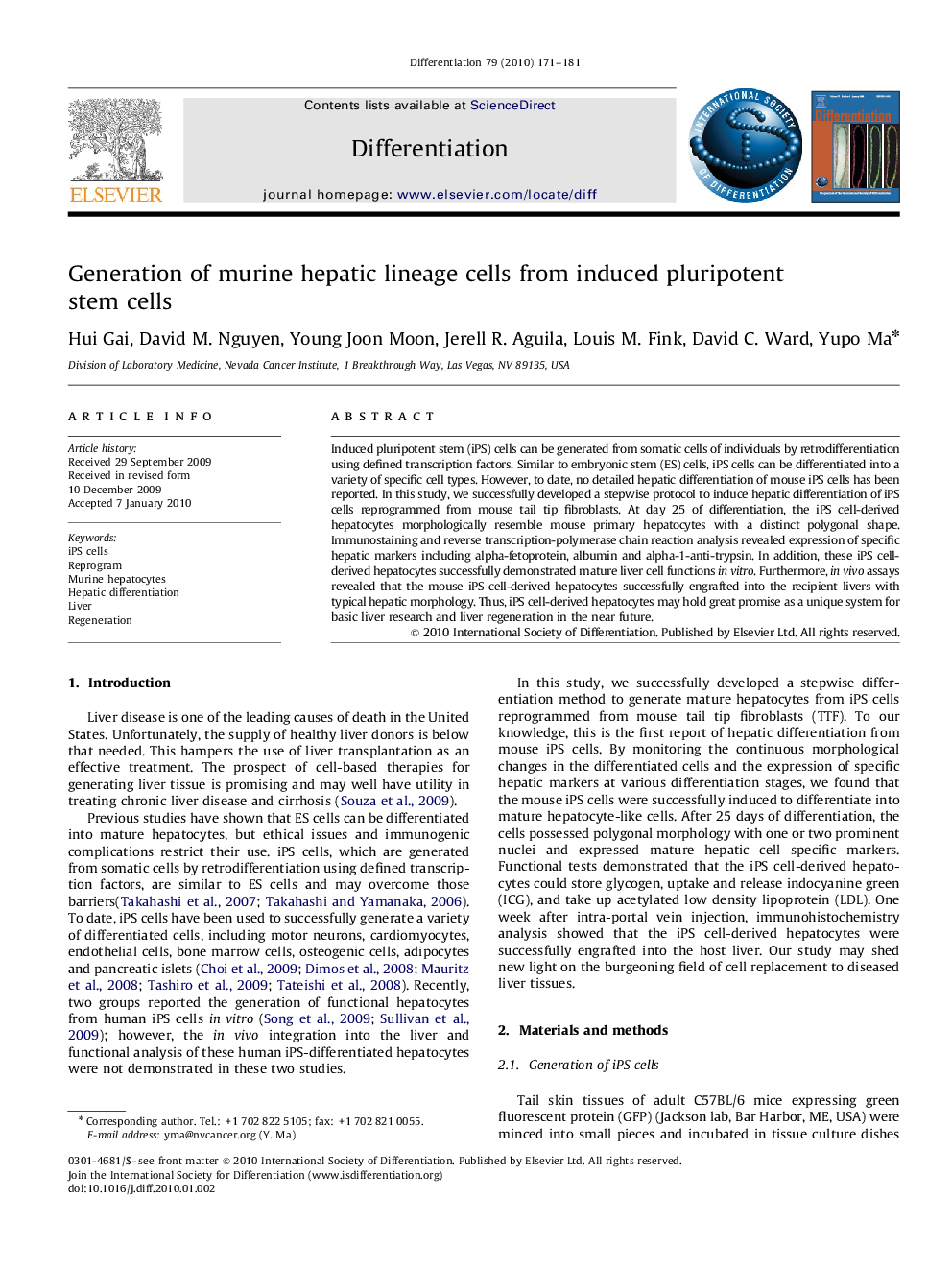| Article ID | Journal | Published Year | Pages | File Type |
|---|---|---|---|---|
| 2119637 | Differentiation | 2010 | 11 Pages |
Induced pluripotent stem (iPS) cells can be generated from somatic cells of individuals by retrodifferentiation using defined transcription factors. Similar to embryonic stem (ES) cells, iPS cells can be differentiated into a variety of specific cell types. However, to date, no detailed hepatic differentiation of mouse iPS cells has been reported. In this study, we successfully developed a stepwise protocol to induce hepatic differentiation of iPS cells reprogrammed from mouse tail tip fibroblasts. At day 25 of differentiation, the iPS cell-derived hepatocytes morphologically resemble mouse primary hepatocytes with a distinct polygonal shape. Immunostaining and reverse transcription-polymerase chain reaction analysis revealed expression of specific hepatic markers including alpha-fetoprotein, albumin and alpha-1-anti-trypsin. In addition, these iPS cell-derived hepatocytes successfully demonstrated mature liver cell functions in vitro. Furthermore, in vivo assays revealed that the mouse iPS cell-derived hepatocytes successfully engrafted into the recipient livers with typical hepatic morphology. Thus, iPS cell-derived hepatocytes may hold great promise as a unique system for basic liver research and liver regeneration in the near future.
